

This online news website is owned and operated by Becky Watts. If you enjoy reading Pike County Times, consider buying an advertisement for your business or sending a donation to support the only free online newspaper in Pike County. Donations can be sent to: The Pike County Times, PO Box 843, Zebulon, Georgia 30295. Click here to donate through PayPal. Thanks for supporting Pike County's only free online newspaper!
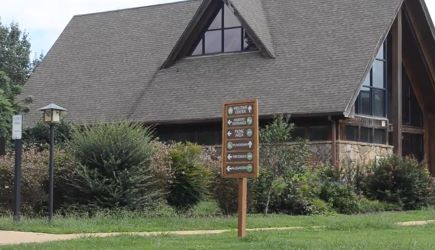
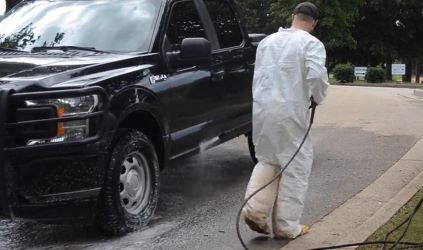
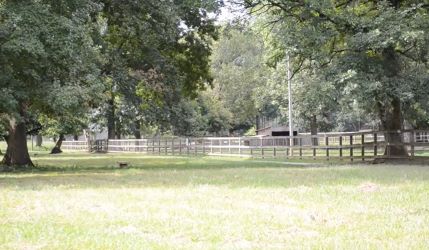
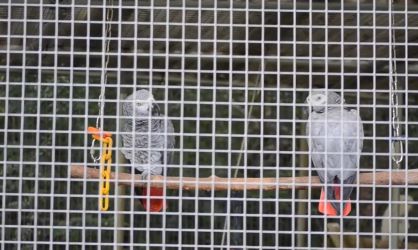
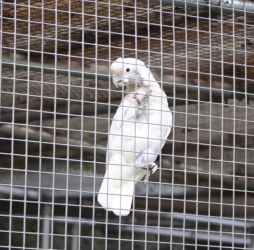

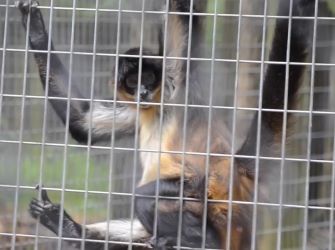
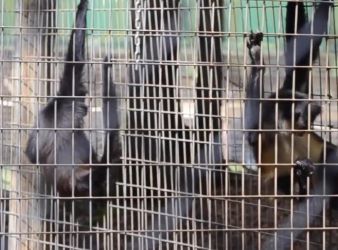
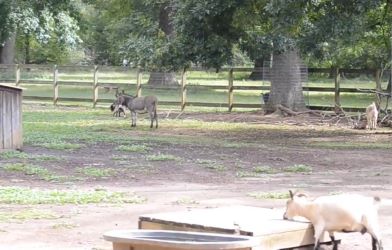
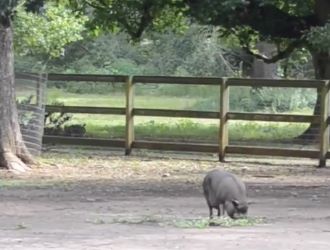
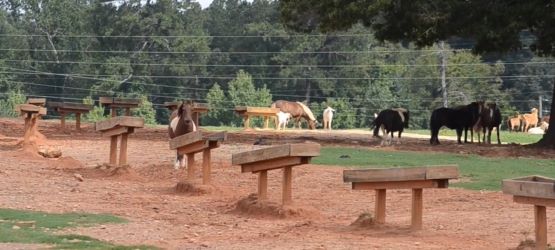

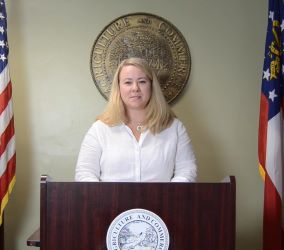
Pike County Times began receiving messages about Noah’s Ark in Locust Grove not too long after a flock of wild black vultures was diagnosed with avian influenza. Since then, concerns about the animals there as well other underlying concerns about the current members of the board at Noah’s Ark have flooded social media.
Many around our area have visited Noah’s Ark and feel a bond with the facility because of the good times that children and grandchildren have had while visiting and are keeping an eye on the situation with concern for the long-term viability of this facility.
Others are concerned with the close proximity of Henry County to Pike County with regard to domesticated birds and the large vulture population that keeps the roads and byways in Pike County clean of dead wildlife.
With all of this in mind, Pike County Times began digging into the avian flu and how it could affect Pike County citizens and their backyard flocks. Commercial growers and wildlife rehabilitation experts already have a set of protocols that they follow to lessen the likelihood of their birds falling prey to avian flu.
What do owners of backyard chickens, guineas, and other domesticated birds in Pike County need to know in order to lessen the likelihood of losing members of their flock?
What Is Avian Influenza and What Are the Risks?
The Georgia Department of Agriculture (GDA) has a lot of information about the avian flu and how it can affect poultry in our area. This information is from https://agr.georgia.gov/avian-influenza.aspx and can be read more in depth there.
Avian influenza is a virus that can cause severe effects to poultry up to and including death. Chickens, turkeys, pheasants, quail, domestic ducks, geese, and guinea fowl are specifically listed as susceptible. Avian influenza is spread by waterfowl and wild birds.
Common sense flock protections from the USDA include:
• Ensuring all entry requirements including testing for Avian Influenza are met prior to movement of birds.
• Use dedicated footwear and wash your hands when tending your flock.
• Do not let poultry drink untreated water from lakes and ponds.
• Do not let waterfowl become residents close to small domestic flocks.
• Do not come into direct contact with your flocks if you have seen birds in another country or been involved with hunting, or in contact with any other birds (zoos, auctions, flea markets, live bird markets)
Backyard chicken and other bird type owners should also ensure that water is under a place that is covered to ensure that fecal matter from flying wildlife cannot contaminate the watering containers.
Flock owners should monitor for symptoms of avian influenza which include:
• Drop in egg production, soft eggshells
• Discolored combs and feet
• Birds stop eating or drinking
• Diarrhea
• Sudden mortality
Go to the USDA Defend the Flock website at aphis.usda.gov/aphis/ourfocus/animalhealth/animal-disease-information/avian/defend-the-flock-program/dtf-resources for more ideas on how to protect your backyard flock.
Reports of flock issues and questions about domestic birds can be made to the avian influenza hotline at 770-766-6850. Testing is free. Go to gapoultrylab.org/avian-influenza-hotline/ for more information.
If flock owners have any questions or concerns, GDA advises calling your veterinarian or the avian influenza hotline above. More information can be found at agr.georgia.gov/suspension-of-certain-poultry-and-feathered-fowl-activities-is-lifted.aspx
Avian Influenza in Toombs County, Georgia
According to the AGR, avian flu has been found in poultry and wild birds here across the United States this year, and it has also been detected in Georgia.
It has been less than two months since the suspension on poultry and other birds was lifted to allow exhibitions, shows, flea markets, auctions, and other activities to begin again here in Georgia. Avian flu prompted the suspension from February 16 through July 1, 2022.
The finding at Noah’s Ark in Henry County is the second case in the state of Georgia so far this year. The first case has been closed.
Avian flu was first detected in Toombs County, Georgia (below Vidalia) according to a June 1, 2022 press release from the U.S. Department of Agriculture (USDA) Animal and Plant Health Inspection Service (APHIS).
APHIS coordinated with state animal health officials in Georgia to confirm avian flu, quarantine the facility where it was found, and euthanize birds to prevent the disease from spreading with an emphasis on ensuring that sick birds do not share the disease with other birds or become a part of our food system.
According to the APHIS press release at www.aphis.usda.gov/aphis/newsroom/stakeholder-info/sa_by_date/sa-2022/hpai-ga, the Animal Health Protection Act authorizes APHIS to provide indemnity payments for producers who lose birds due to their removal from the population in an avian flu situation.
WTOC Channel 11 out of Savannah covered the situation in Toombs County and learned from Agriculture Commissioner Gary Black that the owner of an exotic bird flock noted sickness among his birds and nearby vultures. This owner was forced to euthanize hundreds of chickens, ducks, and peacocks to stop the spread of the virus and protect surrounding commercial poultry facilities. Here is the link to that story: /www.wtoc.com/2022/06/02/avian-influenza-found-toombs-county/.
Avian Influenza in Henry County, Georgia
Erin J. B. White, Director of Creative Projects for the Georgia Department of Agriculture (GDA), answered a number of questions for Pike County Times regarding the incident at Noah’s Ark in Henry County. GDA also put out press releases on the situation there.
“As far as origin, the flock owners reported an increased rate of wild black vulture mortality as well as sick domestic birds. We understand the virus was spread by wild vultures which roosted on the property,” she said. “Avian Influenza is carried and spread by wild and migratory foul with little detriment. However, this virus has devastating effects on our domestic birds. Given the importance of Georgia’s poultry industry, this is an issue that we take extremely seriously.”
Has GDA been onsite and a part of efforts at Noah’s Ark? “The Georgia Department of Agriculture’s Emergency Response team is on-site and responding to an Avian Influenza case in Henry County. Our team is highly trained and prepared to mitigate these types of incidents,” she said. “We continue to work in very close concert with local, state, and federal agencies who are also on-site. The property will remain closed and under quarantine for the days ahead.”
What are the results of testing there? “On Monday, August 22, USDA’s National Veterinary Services Laboratory (NVSL) confirmed our state lab’s results of the presence of the H5N1 avian influenza virus,” White said.
What types of permits are held with GDA by Noah’s Ark, and what type of oversight is given with those permits? White advised that “Noah’s Ark holds a current, active Animal Shelter license with GDA. This is because the facility sometimes houses rescue dogs on the property and adopts them out. Our inspections are limited to our regulatory authority over those activities. Noah’s Ark has had a history of compliance. Last inspection, 5/4/22 there were 8 dogs housed there under shelter license.”
GDA put out a press release today that advises as follows: “At this time, the Georgia Department of Agriculture’s initial response efforts have concluded.” agr.georgia.gov/avian-influenza.aspx
GDA held a press conference that was sent to Pike County Times by a link that was viewed this evening. The following is from that press conference.
GDA Holds a Press Conference
Georgia’s Agriculture Commissioner Gary Black held a press conference today to bring the public up to date on the situation in Henry County. Pictures included in this article are from the Georgia Department of Agriculture and show onsite biosecurity practices with cleaning the underside of the truck to avoid possibly moving the virus from one place to another, pictures of the facility with some of the remaining parrot-type birds, and other animals including a tiger, monkeys, and some farm animals.
Over the past week, Black advised that the Georgia Department of Agriculture and the US Department of Agriculture Animal Plant Health Inspection Service have been involved in the investigation, confirmation, and quarantine efforts in Henry County. He also advised that avian flu has affected 39 states at this time.
Black said that the disease has been detected in wild birds across much of the US this year. “The disease has particularly affected waterfowl and scavenging species such as vultures and bald eagles. Avian influenza is most often spread by direct contact between infected birds and healthy birds.”
He said that avian flu is a production animal health and economic situation for our annual 28 billion dollar poultry industry as well as for backyard flock owners, but he stressed that the likelihood of human infection is “extremely low.”
He stated that leaving this virus unchecked could have enormous implications for trade around the globe as well for as our state economy.
He then applauded the trained professionals who quickly responded to the situation this week. “The goal of the response efforts is to protect our poultry industry but also to protect the citizens of the state of Georgia,” Black said.
Dr. Janemarie Hennebelle, State Veterinarian and Animal Health Program Manager for the Georgia Department of Agriculture, also spoke at the press conference. She began by saying, “…Henry County, we see you, and we hear you. This has been a tough week for y’all and for everyone involved in responding to this animal disease event.”
She then laid out some key points on what has happened at Noah’s Ark Animal Sanctuary in Locust Grove, Henry County.
“The mission of the State Animal Health Team is to prevent, eradicate, and control high consequence infectious diseases that can impact a variety of Georgia animals,” Hennebelle said. She then explained that GDA specifically has jurisdiction over domestic avian species defined as poultry under Georgia law.
On Saturday, August 13, 2022, Hennebelle advised that they received a notification from the facility of an increase in wild black vulture mortality. She advised that this was shared with the Georgia Department of Natural Resources who has jurisdiction over wildlife in Georgia.
On Thursday, August 18, there was a notification that domestic ducks were showing signs of avian flu. On Friday, August 19, samples were collected from the domestic ducks to test for avian flu. “We were notified later that evening by the lab that H5 highly pathogenic avian influenza was detected, and that’s the strain that’s been going around all year and causing this national outbreak.”
She advised that the sample results were later confirmed on August 22 by the National Veterinary Services Laboratory.
“In partnership with the Georgia Poultry Lab Network, the US Department of Agriculture, the Georgia Department of Natural Resources, and the facility in Henry County, we implemented a response strategy to quickly contain the virus on the premises and reduce the likelihood of further spread,” she said. “Our response, unfortunately but necessarily, involves depopulation of birds that are at high risk for highly pathogenic avian influenza and are classified as poultry under Georgia law.”
In this case, just over 100 birds were affected at the facility, and disposal was conducted according to state law.
A quarantine has been instituted for all avian species at Noah’s Ark for a minimum of 5 months.
Hennebelle advised at this time, a majority of the Department of Agriculture’s initial response efforts have concluded. However, the health of the animals that remain on site will be monitored so that the facility can be released from quarantine and safely resume operation.
She then addressed flock owners both in the area and around the state when she said that the GDA is encouraging flock owners to have robust measures in place to protect their birds from avian influenza. Suggested measures include moving birds with outdoor access indoors or covering their enclosures to reduce the likelihood of interaction with wild birds that may be shedding the virus.
Hennebelle also suggested discussing biosecurity measures with your veterinarian or your extension agent. The Avian Influenza webpage is a good resource as well. agr.georgia.gov/avian-influenza.aspx
Commissioner Black then praised the partnerships including Animal Services and Animal Health officers of the US Department of Agriculture, Major Stephen Adams from the Law Enforcement Division of Georgia Department of Natural Resources (DNR), and DNR Commissioner Mark Williams for their help in this response effort.
He also thanked those from the Georgia Forestry Commission, who assisted with decontamination of vehicles that came in and out of the facility, and others like Erin J. B. White, Director of Creative Projects for the Georgia Department of Agriculture who responded to the questions of Pike County Times, for their help in a very difficult situation.
Black also spoke on the behalf of the State of Georgia and thanked the Henry County Sheriff’s Office, the Police Department, and Public Works saying that their cooperation has been “absolutely fantastic.” He also said that he appreciated the communication with legislative delegates and county elected officials as well.
Black gave a closing appeal as he closed out the press conference saying that there are great passions on both sides involved in an effort like this, and that folks have a right to have an opinion but said that he wants the citizens of Georgia to know that this dedicated group of people who work for the State of Georgia have managed this situation with great care and a humane approach to doing their job in order to bring this to a successful conclusion.
“I am very proud to be a Georgian and very proud of these professionals who have managed this to conclusion,” he said.
LINK ADDED 8.27.22: Here is the news conference if you would like to watch it: https://www.youtube.com/watch?v=aPU59V9VsjI
Closing
Erin J. B. White, Director of Creative Projects for the Georgia Department of Agriculture, advised Pike County Times about the incubation period for avian flu. “The incubation period is variable (1-7 days), and dependent upon the AI virus strain, dose, route of exposure, and species of bird,” she said. “The OIE (World Organization for Animal Health) recognizes a 14-day incubation period at the flock level for high pathogenicity avian influenza for virus spread in a bird population.”
Detailed information from the USDA can be found here: www.aphis.usda.gov/animal_health/monitoring_surveillance/avian-influenza-case-definition.pdf
“Avian influenza viruses are generally sensitive to most detergents and disinfectants, and heating and drying will inactivate them. However, avian influenza viruses can persist in soil, feces, and pond water for varying amounts of time, depending on environmental conditions,” White said.
What are ways to avoid possible cross contamination? The Georgia Department of Agriculture suggests isolating new birds for 30 days prior to bringing them into the main flock, implementing strict biosecurity protocols to avoid contamination, and monitoring flocks for signs of avian flu like becoming quiet, not eating and/or drinking, diarrhea, or having discolored combs and feet. However, flock owners need to be aware that sometimes birds can die suddenly without any of these symptoms.
If flock owners have any questions or concerns, GDA advises calling your veterinarian or the avian influenza hotline at 770-766-6850. Testing is free. You can also go to gapoultrylab.org/avian-influenza-hotline/ for more information.
Report dead or sick bald eagles or vultures when seen in unusually high numbers in a single location to the Department of Natural Resources (DNR) at (478) 994-1438.
From the GDA press release on August 26, 2022, “Avian influenza does not pose a risk to the food supply, and no affected animals entered the food chain. The risk of human infection with avian influenza is very low.” agr.georgia.gov/avian-influenza.aspx
[Note from the Editor: Thank you to the local wildlife rehabber who spoke to me just a few days ago and got this ball rolling. I never would have even touched this without your encouragement!
A note to all... There is a lot of information in this article that I learned about avian flu. And while I am sad for the animals that have been euthanized at Noah's Ark, I also would not want them to suffer or for this virus to come to Pike County because I've seen how close some of y'all are to your chickens. If you have a backyard flock, please take protective meausures to keep them safe!
And just in case you wondered, there is more than 3 hours in phone calls, emails, and research in this article. There is more 7 hours in writing in this article. Thank you for reading Pike County Times and supporting what I do!]
Thank you to First Bank of Pike for sponsoring Pike County Times’ Breaking News Alerts! First Bank of Pike has been serving customers in Pike County and the surrounding area since 1901 and offers Personal and Business banking with a personal touch. Services include checking, savings, money market, certificates of deposit, and IRA’s. Mobile Banking and Bill Payment services are also available! Click here for more. Please let First Bank of Pike know that you appreciate their sponsorship of Breaking News Alerts on Pike County's only FREE online newspaper!
INFORMATION ABOUT RECEIVING BREAKING NEWS ALERTS CAN BE FOUND, HERE.
Thanks for reading and supporting Pike County Times.com!
